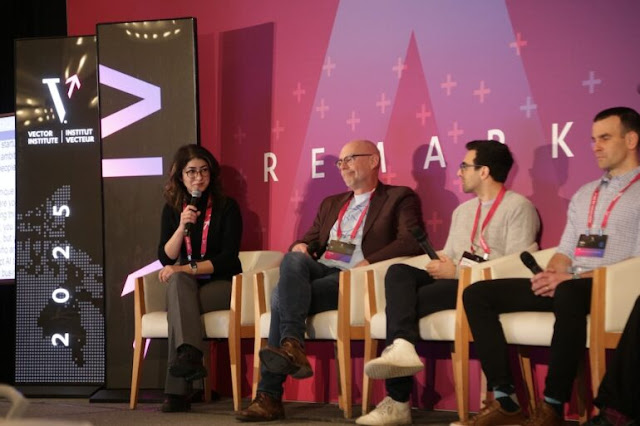Cameron Schuler, Chief Commercialization Officer at the Vector Institute, often asks, “What is Canada the best at?” He hopes for an answer beyond “hockey.” At the Vector Institute’s Remarkable Conference in March, he urged the audience to see Canada as a global leader in artificial intelligence (AI). “Modern AI started in Canada,” Schuler said. “We want its future—and all the economic and social benefits—to grow here too.”
The Vector Institute, a nonprofit focused on advancing AI research, hosted the two-day event. It brought together experts from government, businesses, universities, and more to discuss how Canada can adopt and profit from AI. The conference highlighted that using AI isn’t just about boosting productivity—it’s about strengthening Canada’s position in a changing global landscape, including tensions like a potential U.S. trade war.
Schuler believes Canada has the resources to excel in AI. “We’re already the best at developing AI,” he said. “Now we need to be the best at using it.”
Canada’s AI Leadership
Canada has a strong history in AI. The same week as the conference, Richard Sutton from the University of Alberta won the 2024 Turing Award for his work on reinforcement learning. Earlier, Geoffrey Hinton, known as the “Godfather of AI,” received the 2024 Nobel Prize in Physics. Hinton co-founded the Vector Institute in 2017 with Brendan Frey and Raquel Urtasun.
The Vector Institute supports groundbreaking research. Its scientists use AI to improve cancer detection, share data securely, and create efficient, trustworthy AI models. These efforts make AI more practical, safe, and reliable.
However, speakers at the conference warned that Canada risks falling behind. Despite inventing AI, the country lags in using it widely and turning it into profitable businesses.
Connecting Research to Business
Azin Asgarian, AI Technical Lead at Georgian, advises companies on adopting AI. During a panel called “Bridging the Gap: How AI Research Accelerates Proof of Concepts to Production,” she explained that companies face a “buy or build” dilemma. With so many AI products and hype, businesses need clear strategies. “Things move fast,” Asgarian said. “Companies must tie AI to specific business goals.”
The Vector Institute helps by connecting AI research to real-world business needs. Shauneen Bruder, a Vector board member, praised its role. “Vector speeds up progress and shares best practices,” she said. “Strong leadership is key to seizing this opportunity.”
Canada’s Big Moment
Kristin Milchanowski, Chief AI and Data Officer at BMO, sees AI as Canada’s chance to shine. “We have all the tools to shape AI’s future,” she said. “With focus, we can turn our AI leadership into real impact, driving innovation and strengthening our economy.”
At BMO, Milchanowski’s team uses AI to improve customer services and enhance security. She views AI as more than a tool for efficiency—it’s a game-changer when used responsibly.
AI for Real Problems
Laura Gilbert, former Director of Data Science at 10 Downing Street, knows how to convince skeptics about AI. She shared an example: in the UK, prescription errors cause up to 22,000 deaths yearly, costing the National Health Service about £1 billion. “Imagine using that money for cancer treatments,” she said. AI can tackle complex problems like drug interactions, which humans can’t solve alone.
Now leading the AI for Government Program at the Ellison Institute of Technology at Oxford, Gilbert attended the conference to connect with others who believe AI can serve the public good. She stressed the need for decision-makers to have clear, trustworthy information about AI.
A Call for Action
Schuler emphasized that adopting AI is critical for Canada’s future security and independence. “Toronto has the world’s most vibrant AI ecosystem,” he said. “That’s why Vector is here to deliver on AI’s promise. Since modern AI began in Canada, we must ensure its future—and its benefits—stays here.”
By acting now, Canada can turn its AI expertise into global leadership, creating a stronger, more innovative future.


Comments
Post a Comment